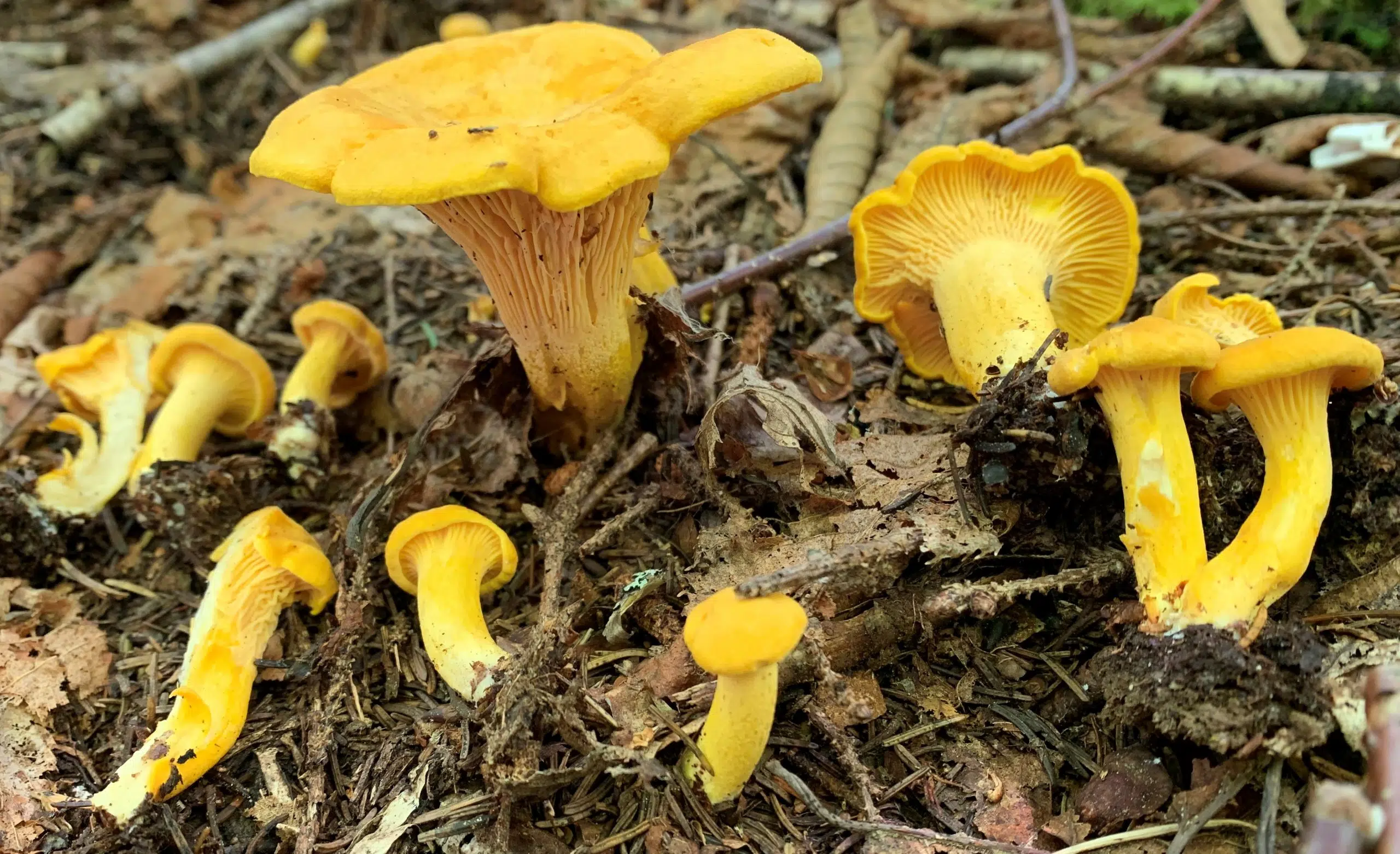
Golden Chanterelle Mushrooms (Image: Dr. Alfredo Justo)
The New Brunswick Museum, (NBM) is hosting a trio of mushroom identification and learning sessions, called “Mycological Mondays,” starting September 13.
Curator of Botany and Mycology, Dr. Alfredo Justo says mushrooms are important because they keep forest ecosystems functioning and healthy, even if they aren’t always visible.
“We have a lot of mushrooms that are associated with the roots of trees and they’re helping trees grow and they’re helping plants colonize the earth,” explains Justo. “Without fungi, plants probably wouldn’t have been able to colonize the terrestrial ecosystems in the first place.”
He says plants and fungi have a beneficial symbiotic relationship, with the fungi giving trees nutrients from the soil and access to water while the plants give the fungi sugars from photosynthesis.
Mycological season generally starts in June and lasts until mid-August/mid-September, or into October depending on temperatures. Justo estimates there are around 3000 species of mushroom-forming fungi in New Brunswick, but only have 600/700 fungi registered in the NBM.
This is the first time NMB has hosted Mycological Mondays, to be held September 13, 20, and 27, from 10:00 am to 5:00 pm at the NBM Exhibition Centre. The sessions were originally planned to be held in 2020, but the COVID-19 pandemic and bad drought postposed the sessions.
NBM’s Botany and Mycology section will have a display of mushrooms fruiting in the province, and people are encouraged to bring mushrooms they found to have them identified and learn more about them.
“I think it’s a very different experience to have the mushroom in front of you and to have somebody to explain you with the different characteristics that you have to look at to be able to identify them,” he said. “I don’t think anything beats the experience of learning in-person with the mushrooms in front of you.”
Anyone interested in learning more can check out the New Brunswick Museum’s Mycological Mondays webpage and the Société MycoNB Society Facebook page.





